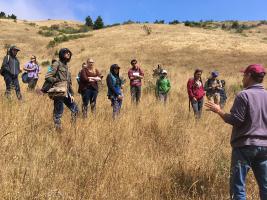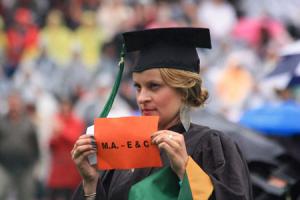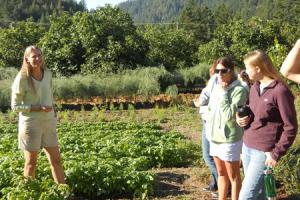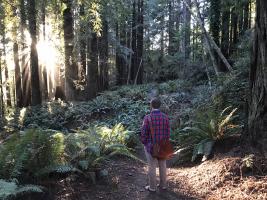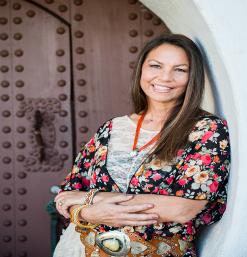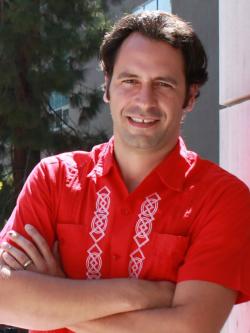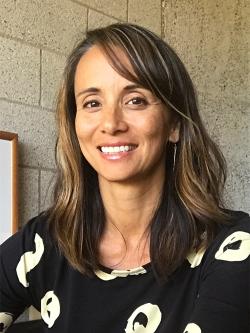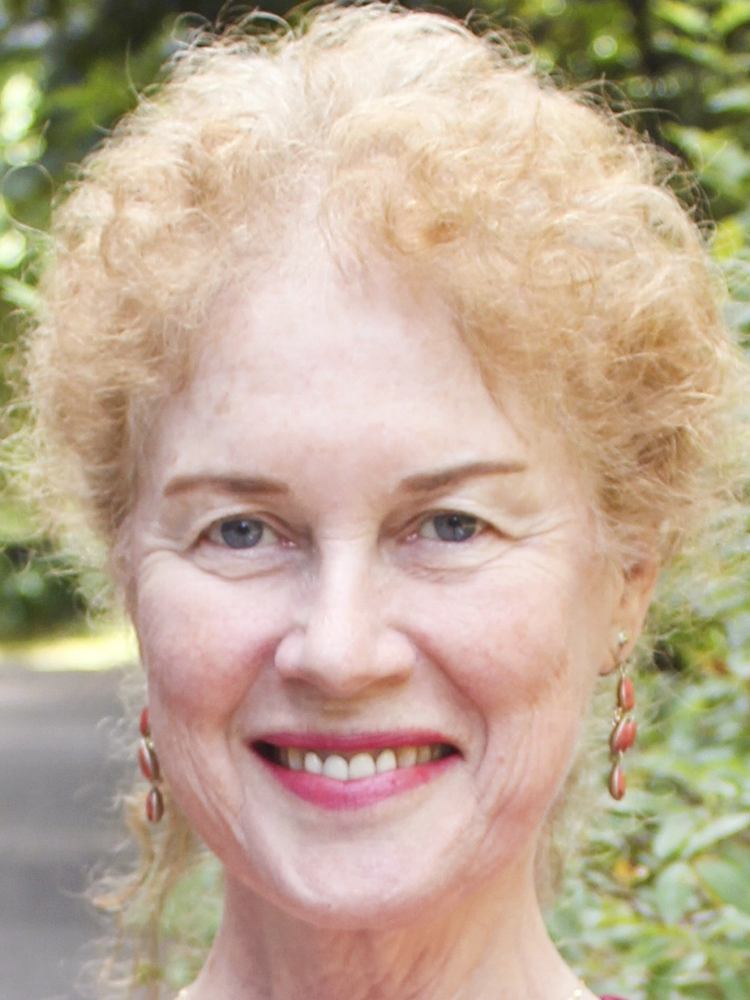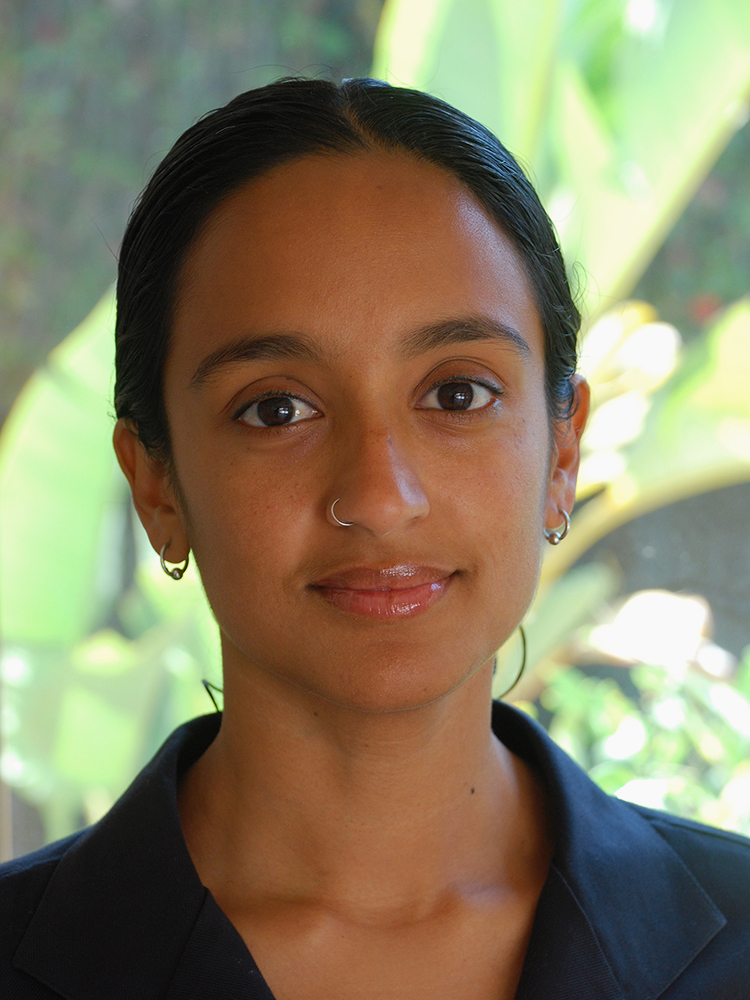We are grateful to the Office of Sustainability and the Native American Studies department at Cal Poly Humboldt for cosponsoring this talk.
Cántaro Azul (Blue Jug) began in 2006 in Baja California Sur, with the goal of improving the quality of life for people without access to clean water for health or hygiene, principally in rural communities in Mexico. Initially focused on developing appropriate water technologies for rural environments, the team designed la Mesita Azul®, which uses ultraviolet light to provide water disinfection in rural homes. The organization’s program has since evolved into developing, implementing, and evaluating water strategies for health and hygiene, that are based on community organization and participation and which foster healthy habits across the population.
Fermin Reygadas is the executive director and cofounder of Cántaro Azul. He received his PhD from the Energy and Resources Group at the University of California at Berkeley, and a bachelors in physics from the Universidad Nacional Autónoma de México.
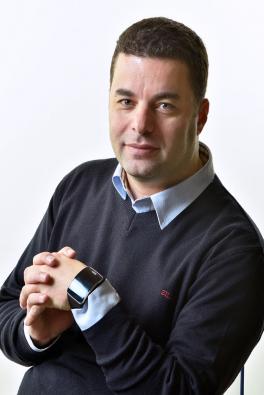
March 25
The Ecological Superblock / Neo Nature: the city in the Anthropocene
The rapid undergoing and coming climatic and ecological change, coupled with rapid acceleration in population growth, raise doubts and concerns regarding the ability of the existing urban systems to adapt to future changes. These changes represent a unique opportunity to use ecologically based architecture and urban design, blending urban systems into natural systems within an integrated ecosystem named the Ecological Superblock. Ecological Superblock provides a breakthrough solution capable of adapting and evolving to change. Its design employs ecological intelligence principles that shift design thinking from the traditional processes of perfecting the single unique design to ecological processes and systems dynamics.
Aiman Tabony is a researcher and an architect with a PhD in architecture, computation, and ecology from the Architectural Association in London. With Enriqueta Llabres he cofounded LlabresTabony Architects in 2017, a London-based multidisciplinary design studio specializing in the fields of architecture, urbanism, geography, ecology, and landscape architecture. The ethos of their practice relies in its critical approach to ecology and its relationship with the built environment.
April 1
E kūkulu nā kiaʻi: guarding against green colonialism in Hawaiʻi
This talk will explore two recent, interconnected land struggles in Hawaiʻi — one over the proposed Thirty-Meter Telescope on Maunakea, and the other over a renewable energy project on Oʻahu. In 2019, worldwide attention turned to Native Hawaiian uprisings around the sacred summit of Maunakea. In the islands, the kiaʻi mauna (mountain guardians/protectors) inspired communities across the archipelago to stand against forces of transnational capital and settler state police power, in protection of ancestral lands. The largest number of arrests targeted a Kanaka Maoli and Pacific Islander-led movement against a massive wind farm in the rural community of Kahuku, Oʻahu.
This presentation will situate the Kahuku wind farm issue in a longer history of contention over the “green colonialism” of renewable energy projects that have failed to include predominantly-Indigenous Hawaiian communities in the planning. The Hawaiian cultural concepts of kiaʻi, kūkulu, and aloha ʻāina, as they have informed the practices of protectors, will frame the discussion.
Born and raised on Oʻahu, Noelani Goodyear-Kaʻōpua is a professor and chair of the political science department at the University of Hawaiʻi at Mānoa, where she teaches Hawaiian and Indigenous politics. A lifetime student of and participant in Hawaiian movements, Noelani’s research has involved documenting, analyzing and proliferating the ways people are transforming imperial and settler colonial relations through Indigenous political values and initiatives. Her books include The Seeds We Planted: Portraits of a Native Hawaiian Charter School; A Nation Rising: Hawaiian Movements for Life, Land and Sovereignty; Nā Wāhine Koa: Hawaiian Women for Sovereignty and Demilitarization; and The Value of Hawaiʻi (vol 2 & 3).
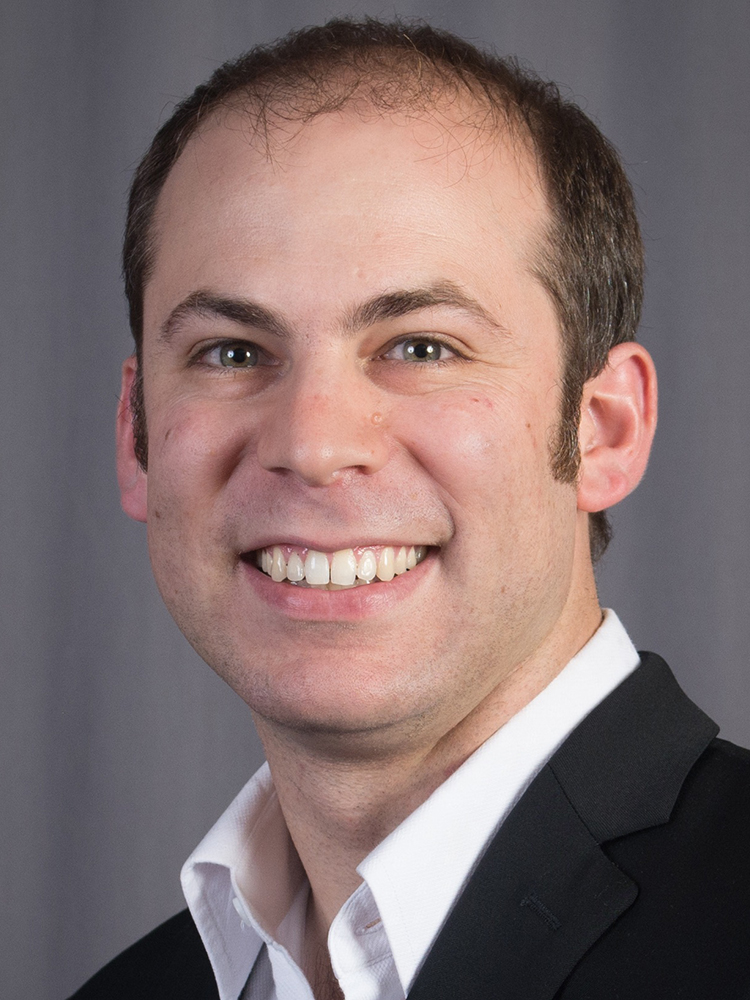
Despite decades of effort to improve air quality in California, large and systemic racial and ethnic disparities in air pollution exposure still persist. In particular, people of color and members of disadvantaged communities are exposed to higher-than-average concentrations of many health-relevant air pollutants, including particulate matter and nitrogen oxides. Recent advances in measurement and modeling technology — as well as new conceptual frameworks for evaluating environmental injustice — can help us better understand the contours of and possible solutions to this problem. This seminar will present quantitative evidence on environmental inequity in California and the Bay Area using a combination of statewide modeling and intensive measurements using a fleet of Google Street View cars specially equipped to measure air quality. The findings point to possible air pollution control approaches that may be especially impactful in addressing these disparities.
Joshua Apte is an Assistant Professor at UC Berkeley, jointly appointed in the Department of Civil and Environmental Engineering and in the School of Public Health. His research focuses on the intersection of air quality, sustainability, and environmental justice, with an emphasis on the development of new methods for quantifying air pollution exposures. His group uses field measurements, air quality models, and satellite remote sensing to to quantify air pollutant emissions and concentrations, and their resulting spatial patterns, human exposures, and public health consequences in US communities and around the world. Before coming to UC Berkeley, he was previously on the faculty at the University of Texas at Austin, the inaugural ITRI-Rosenfeld Postdoctoral Fellow at Lawrence Berkeley National Laboratory, and a Fulbright-Nehru Fellow at the Indian Institute of Technology, Delhi. He holds MS and PhD degrees from the Energy and Resource Group at UC Berkeley and a ScB in Environmental Science from Brown University.
Please note that this talk will be held at 4 pm.
Cattle raising is the chief driver of deforestation in many parts of the world, demanding huge amounts of land for both pasture and cultivation of feed. This makes cattle the largest source of greenhouse gas emissions in many countries. In Brazil, over 60% of the national emissions come from this one source, and much of the meat and leather is destined for export — thus all the consumers, not just the producers, are implicated. In this talk, Barbara Bramble will describe the current status of cattle industry operations in different regions, and compare the impacts of other commodities that are similarly associated with deforestation and climate change. She will then describe new approaches she and her collaborators are taking to reduce deforestation emissions using science, legislation, communications, and advocacy in both consumer and producer countries.
Barbara Bramble is the Vice President of International Conservation and Corporate Strategies at the National Wildlife Federation. At NWF, she works with the private sector to sever the link between deforestation and agricultural production; she helps global brands and retailers to avoid purchasing agricultural and forest commodities that originate from recently cleared tropical forests and other carbon rich lands, and to implement voluntary certification standards for sustainable products. For over three decades she has directed NWF’s advocacy to improve U.S. international environmental policy with regard to climate change and forest conservation, and the social and environmental policies of multilateral financial institutions. She is also the Chair of the Board of the Forest Stewardship Council, the preeminent eco-label for wood and paper products from sustainably managed forests, and formerly chaired the Board of Directors of the Roundtable on Sustainable Biomaterials, which is the equivalent organization for biofuels and bio-based products. Before joining NWF, she served as legal advisor to the White House Council on Environmental Quality, and as an environmental lawyer in private practice.

This talk asks how conceptualizing love as work can provide a fresh perspective on scholarly concerns about the ethics of a politics rooted in love. The article addresses this question through an ethnographic exploration of bovine politics in the Central Himalayan state of Uttarakhand in India. All the actors involved in the social worlds of cow-protection, whether religious gurus or rural women, assert that genuine love for the cow entails a willingness to labor for her. To be a subject in love, for them, is to be a subject who labors. However, they have very different understandings of both the nature of this love and the labors it necessitates. This article examines three distinct kinds of work – protection, service, and care-labor – that these social actors undertake in the pursuit of love. It traces how these different labors produce a varying set of relationships, affiliations, and obligations that crucially shape the politics of love and its ethical potentialities. Understanding love as labor, the article argues, allows us to see that it is the nature of the labor involved in love that conditions its political and ethical possibilities.
Radhika Govindrajan is an Associate Professor of Anthropology at the University of Washington. She is the author of Animal Intimacies: Interspecies Relatedness in India’s Central Himalayas, published in 2018 by the University of Chicago Press and by Penguin India in 2019. She has also published articles in journals such as American Ethnologist, Comparative Study of South Asia, Africa, and the Middle East, South Asia: Journal of South Asian Studies, and HAU: Journal of Ethnographic Theory. She is currently working on a project that explores scandals around sex, land, and religion in rural Uttarakhand.
REGISTER FOR APRIL 22
May 6
Building a data backbone: using data to drive the design of vaccine cold chains in low income countries
Reliable infrastructure is core to the functioning of most systems, including water, sanitation, and health. Nexleaf’s project work includes integrating sensor data and the Internet of Things to provide analyses for governments and other stakeholders who design, finance, maintain and scale reliable infrastructure in support of public health in low and middle income countries. In this talk, Nithya Ramanathan will share her experiences in scaling Nexleaf’s ColdTrace solution, which has been deployed in 23 countries and now protects the vaccine supply for 1 in 10 babies born on Earth. She will also explore that critical role that energy plays in public health.
Nithya Ramanathan is the Chief Executive Officer and Co-founder of Nexleaf Analytics, a nonprofit organization dedicated to preserving human life and protecting our planet by designing sensor technologies, generating data analytics, and advocating for data-driven solutions to global challenges. Nexleaf focuses on serving low-income countries by protecting temperature-sensitive vaccines for newborns, reducing air pollution through incentivizing adoption of cleaner cooking practices, and increasing the livelihood of smallholder farmers by protecting produce from spoilage.

